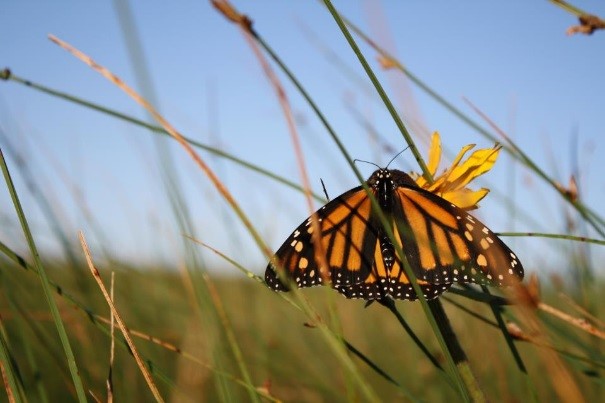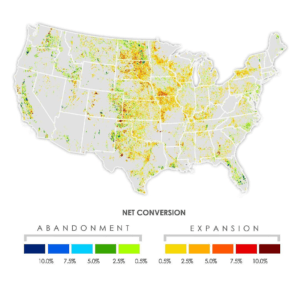We have much more to do and your continued support is needed now more than ever.
EPA Biofuel Rule Includes Loophole that Threatens Wildlife Habitat
Homegrown ethanol should not come at the expense of vanishing prairie ecosystems and wildlife habitat. That was the deal Congress struck in 2007 when it mandated billions of gallons of ethanol and other biofuels be blended into gasoline each year.

On Monday, EPA issued its multi-year final rule on the amount of biofuel to be blended into the country’s fuel supply under the Renewable Fuel Standard (RFS). While most of the scrutiny of the rule thus far has rightly focused on the level of corn ethanol – by far the largest portion of the mandate up to now and the real driver of attendant land use change – more attention must be paid to the agency’s failure to actually enforce habitat protections built into the law governing the RFS.
This decision could not come at a worse time for wildlife. Only 5 percent of America’s native prairie grasslands – home to numerous species of wildlife including sage grouse, prairie chicken, piping plover, pronghorn antelope, and swift fox – remain intact. These lands are increasingly being plowed up to make way for crops, as well as for other development, putting them high atop the list of the world’s most endangered ecosystems.

EPA has never implemented the part of the RFS law to protect native habitats. Instead of requiring biofuel manufacturers to only obtain plant material from previously plowed land, EPA developed an “aggregate compliance approach.” This method compares total U.S. cropland each year to the total baseline amount of eligible cropland in 2007. If subsequent annual cropland totals surpass this baseline, EPA said it would investigate to see if biofuel demand was driving land conversion. However, this approach does not account for the significant amount of cropland lost to development every year, or for location-specific changes not captured by looking at nationwide totals.

Despite growing data showing massive land conversion in the RFS era, EPA has repeatedly refused to revise its failed approach to enforcing the habitat conversion protections in the RFS. This most recent rule shows that EPA will once again fail to implement the law, putting critical grasslands, wetlands, and forests at risk.
![]() You can help! Send a message to EPA telling them to protect habitat for monarchs, swift foxes, and other species by properly enforcing the land conversion protection in the RFS.
You can help! Send a message to EPA telling them to protect habitat for monarchs, swift foxes, and other species by properly enforcing the land conversion protection in the RFS.





















